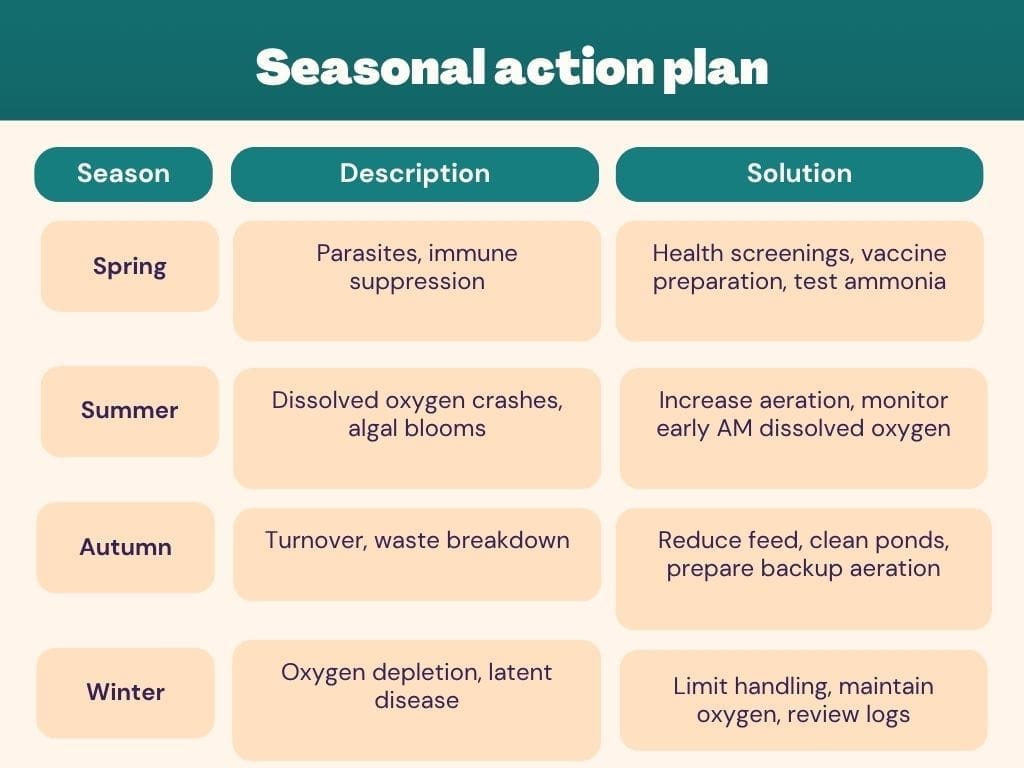Think like a fish: seasonal action plan
Year-round aquatic animal health : creating a seasonal care calendar for success
With seasonal shifts influencing water quality and fish health in complex ways, aquaculture professionals must stay one step ahead. A seasonal care calendar allows you to anticipate risks, schedule health interventions, and optimise productivity throughout the year.
Why use a seasonal calendar?
Just as crops follow an agricultural calendar, aquaculture systems benefit from a cyclical, season-based approach to health and management. By aligning your feeding, testing, vaccination, and observation routines with seasonal trends, you can reduce animal health emergencies and improve animal welfare.
Key elements of a seasonal health calendar:
Routine water testing
Monitor temperature, pH, dissolved oxygen, ammonia, and nitrite weekly
Intensify testing during seasonal transitions (spring and autumn)
Use reliable water testing kits /equipment
Feeding adjustments
Gradually increase feed in spring
Reduce or suspend feeding in winter, depending on species and temperature
Vaccination planning
Schedule vaccines in late spring (before summer peaks) and early autumn (before winter onset)
Aeration and equipment maintenance
Inspect aeration systems and equipment ahead of summer and winter
Maintain backup aerators, especially to mitigate risks of turnover or hypoxia
Health screenings
Spring: check for parasites and signs of suppressed immune function
Autumn: monitor for signs of digestive and water quality issues
Sludge and organic matter management
Remove excess organic material in autumn to reduce decomposition and oxygen depletion risks
Biosecurity checks
Quarantine new stock ahead of season changes
Inspect the condition of biofilters, footbaths, nets, and protocols on a quarterly basis
Team training and log keeping
Conduct seasonal refresher training to help staff recognise early signs of poor water quality and appropriate response actions
Keep a water quality and health log to identify patterns and improve decision making

Final thoughts
Nature operates on a rhythm—your aquaculture system should too.
When you anticipate, rather than react to, seasonal stressors, your operation becomes more resilient, efficient, and profitable. A seasonal care calendar empowers you to protect animal health year-round while reducing the need for emergency interventions. Regular farm visits by an aquatic veterinary or health professional can assist in identifying minor issues before they escalate and support a preventative approach.
Need help tailoring your seasonal plan? Book an appointment with us to help you develop a farm-specific calendar or to do a seasonal water quality audit.



